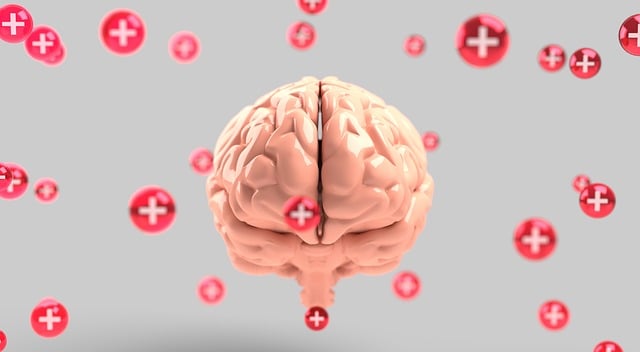Germany's mental health policies for young children highlight a push for early intervention, yet challenges persist in providing equitable therapy access across diverse communities. The country grapples with serving both homogeneous and immigrant families, requiring tailored, culturally sensitive approaches. Burnout prevention is crucial for maintaining quality care, and integrated programs combining therapy with education can enhance emotional well-being. Despite advancements, such as the availability of CBT, play therapy, and family interventions, significant hurdles include limited access, inconsistent quality, and a lack of focus on early detection. Urgent policy reforms are needed to improve therapy accessibility and standardization for young children in German-speaking regions.
Mental health policies and advocacy are crucial for fostering healthy development, especially for young children in the German-speaking region. This article delves into the current state of mental health services for children, identifying gaps and challenges that hinder access to therapy and support systems. We explore effective advocacy strategies, emphasizing awareness building, stakeholder engagement, and evidence-based practices. Furthermore, we discuss successful therapeutic interventions tailored to German-speaking young children, considering cultural aspects and ensuring long-term care accessibility.
- Current State of Mental Health Policies for Young Children in Germany
- – 1.1. Overview of mental health services for children in the German-speaking region
- – 1.2. Gaps and challenges in existing policies
Current State of Mental Health Policies for Young Children in Germany

The current state of mental health policies for young children in Germany reflects a growing recognition of the importance of early intervention and holistic support. While significant progress has been made, challenges remain in ensuring equitable access to therapy for young children in the German-speaking population. Mental healthcare systems often face the dilemma of catering to diverse cultural sensitivities within a largely homogeneous society, necessitating tailored approaches that respect familial and community values.
Burnout prevention strategies for healthcare providers are crucial to sustaining the quality of mental health services. Promoting emotional well-being through integrated programs that combine therapy with educational initiatives can mitigate risks and enhance long-term outcomes. Cultural sensitivity in mental healthcare practice plays a pivotal role in building trust, especially among immigrant families who may face language barriers or have unique cultural perspectives on mental illness. By adopting evidence-based techniques for emotional well-being promotion, Germany can foster more inclusive and effective support systems for young children grappling with mental health challenges.
– 1.1. Overview of mental health services for children in the German-speaking region

In the German-speaking region, mental health services for children have evolved significantly over recent years, with a growing emphasis on early intervention and specialized therapy for young children. The landscape is characterized by a blend of public healthcare systems and private practices offering various therapeutic approaches tailored to meet the unique needs of children facing emotional and behavioral challenges. These include cognitive-behavioral therapy (CBT), play therapy, and family-focused interventions, among others. The integration of innovative treatment methods and evidence-based practices has led to improved outcomes in managing conditions such as anxiety, depression, and trauma.
The availability of mental health support for children is further enhanced by dedicated advocacy groups and policy initiatives that lobby for better access, increased funding, and more comprehensive coverage. Mental Health Policy Analysis and Advocacy plays a crucial role in this regard, highlighting the importance of early detection and intervention to prevent long-term issues. By promoting effective conflict resolution techniques and strategies for anxiety relief, these efforts aim to create a supportive environment where children can flourish. The goal is not just to treat symptoms but to foster resilience and overall well-being among young individuals.
– 1.2. Gaps and challenges in existing policies

Despite significant strides in mental health awareness, policies regarding therapy for young children in German-speaking regions still face several gaps and challenges. One notable issue is the limited access to specialized services tailored for this demographic, often leaving parents struggling to find appropriate support for their children’s emotional well-being. The existing framework often prioritizes adult mental health over early interventions, resulting in a critical need for integrated policies that address childhood trauma and developmental issues.
Additionally, there’s a lack of uniform standards for quality assurance in child therapy, leading to inconsistencies in treatment approaches. This hampers the development of effective self-care practices and stress reduction methods specifically designed for young minds. Furthermore, while social skills training is recognized as an essential component of mental health support, its implementation across different regions varies widely, hindering comprehensive care. These challenges underscore the urgent need for advocacy and policy reforms to ensure that therapy for young children in German-speaking areas becomes more accessible, standardized, and holistic.
In light of the identified gaps and challenges, there is a pressing need for enhanced mental health policy analysis and advocacy for young children in the German-speaking region. The current state of services falls short in providing accessible and comprehensive therapy for young children, highlighting the imperative to prioritize investment and innovation in this area. By advocating for evidence-based practices and increased resources, we can work towards improving the well-being of Germany’s youngest citizens, ensuring they receive the support they need for a healthy and productive future.














